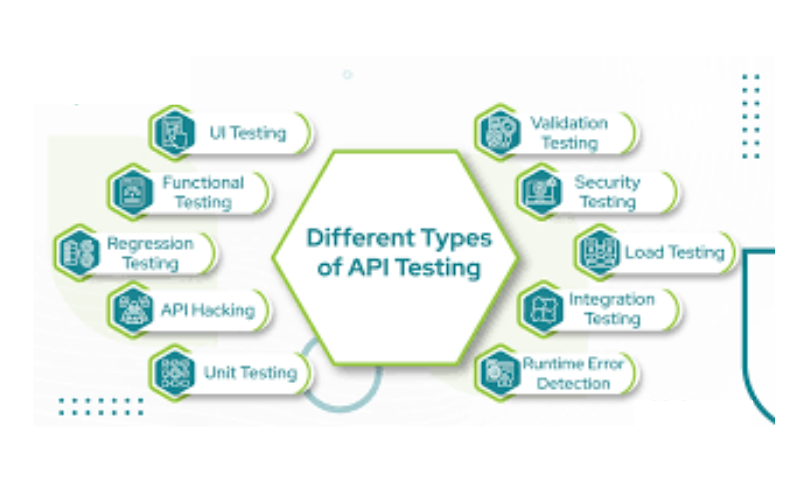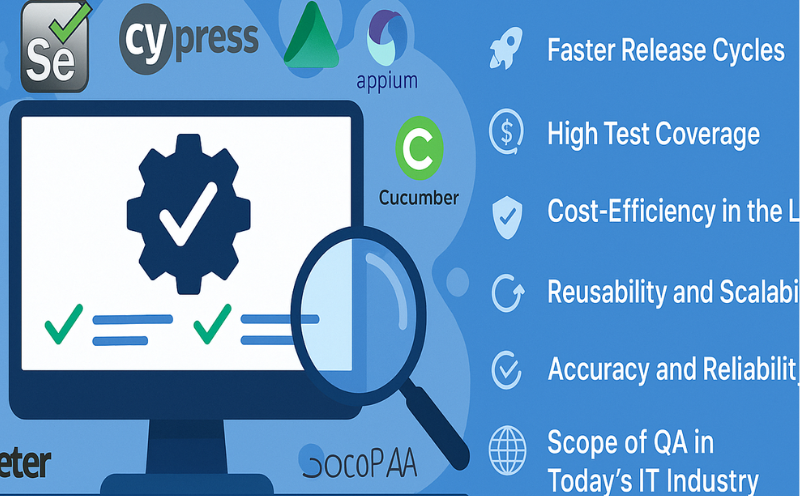Inspirational journeys
Follow the stories of academics and their research expeditions
API Testing in Modern IT: Importance, AI Integration, and Career Scope

Introduction:
What is API Testing?
In
today’s software-driven world, APIs (Application Programming
Interfaces) act as the backbone for applications to communicate with
each other. Whether you're using a mobile app, a web app, or cloud service,
APIs are involved. API testing ensures that this communication
is reliable, fast, and secure.
Unlike
UI testing, API testing focuses on the business logic layer, which
makes it faster, more reliable, and a better choice for early-stage testing in
Agile and DevOps pipelines.
Why API
Testing is So Important?
Here are
the key reasons:
1. Catches
Bugs Early
API
testing can be performed before the UI is ready. This ensures early bug
detection, reducing the cost of fixing issues later in development.
2. Improves
Stability of Applications
API
testing validates the core services and integrations—which are more
stable and reusable than the user interface.
3. Faster
Execution
APIs can
be tested quickly and in parallel, making them ideal for CI/CD
automation.
4. Ensures
Data Integrity
APIs are
the gateway to your application’s data. Testing ensures that input/output
formats, business rules, and authentication all behave as expected.
How AI is Enhancing API Testing
AI is
transforming the way we approach testing, especially APIs. Here’s how:
·
Smart Test Case Generation
AI-powered tools like Testim or Postman AI can auto-generate API
test cases based on service documentation or traffic patterns.
·
Self-Healing Tests
AI can detect changes in API contracts (e.g., new endpoints, parameter
names) and auto-adjust the test scripts—minimizing maintenance.
·
Predictive Defect Analysis
Using ML
algorithms, AI tools can analyze historical bugs and suggest likely
error-prone APIs for deeper testing.
·
Anomaly Detection
AI can automatically flag unusual API response patterns,
error codes, or performance anomalies during testing.
Types of
API Testing in the IT Industry
- Functional Testing
Ensures the API works according to business rules and returns expected outputs. - Load Testing
Checks how the API performs under heavy load or concurrent users. - Security Testing
Validates authentication, authorization, and vulnerability exposure (e.g., SQL injection, broken tokens). - Contract Testing
Verifies if the API meets the defined schema (often using tools like Swagger or Postman). - Regression Testing
Makes sure new changes do not break existing API functionality. - Integration Testing
Checks how the API interacts with other internal or external services. - Error Handling Testing
Ensures proper error codes (like 400, 401, 500) are returned for invalid requests.
The
Growing Demand for API Testers
With the
rise of microservices, mobile apps, and SaaS-based platforms, API
testers are more in demand than ever. Here’s why:
- Microservices architecture heavily
relies on internal API communication.
API testing is tool-agnostic and
versatile—testers can work across UI, backend, and database layers.
- Knowledge of Postman, Rest
Assured, Karate, Swagger, SOAP UI, and CI/CD tools like
Jenkins, GitHub Actions is highly valued.
- In 2025, API testing is a core
part of most SDET (Software Development Engineer in Test) and QA
Automation roles.
Final Thoughts
API
testing is not just a sub-domain of software testing—it’s a mission-critical
activity for ensuring modern applications work efficiently. With the
integration of AI, testers can now automate smarter, catch bugs faster,
and reduce maintenance.
Whether
you’re a student or a working professional, mastering API testing can be
a career-defining decision in the IT industry.




Leave a comment